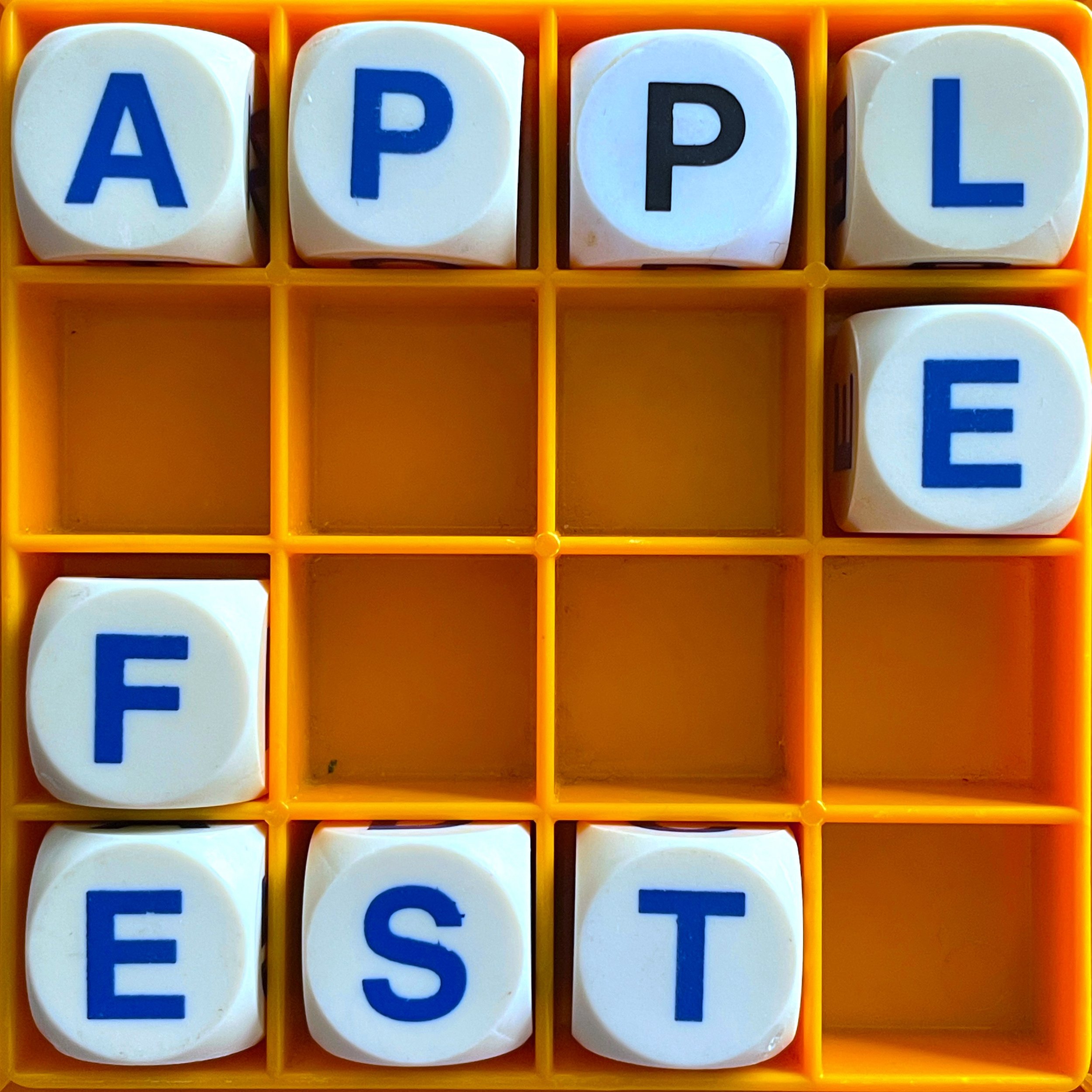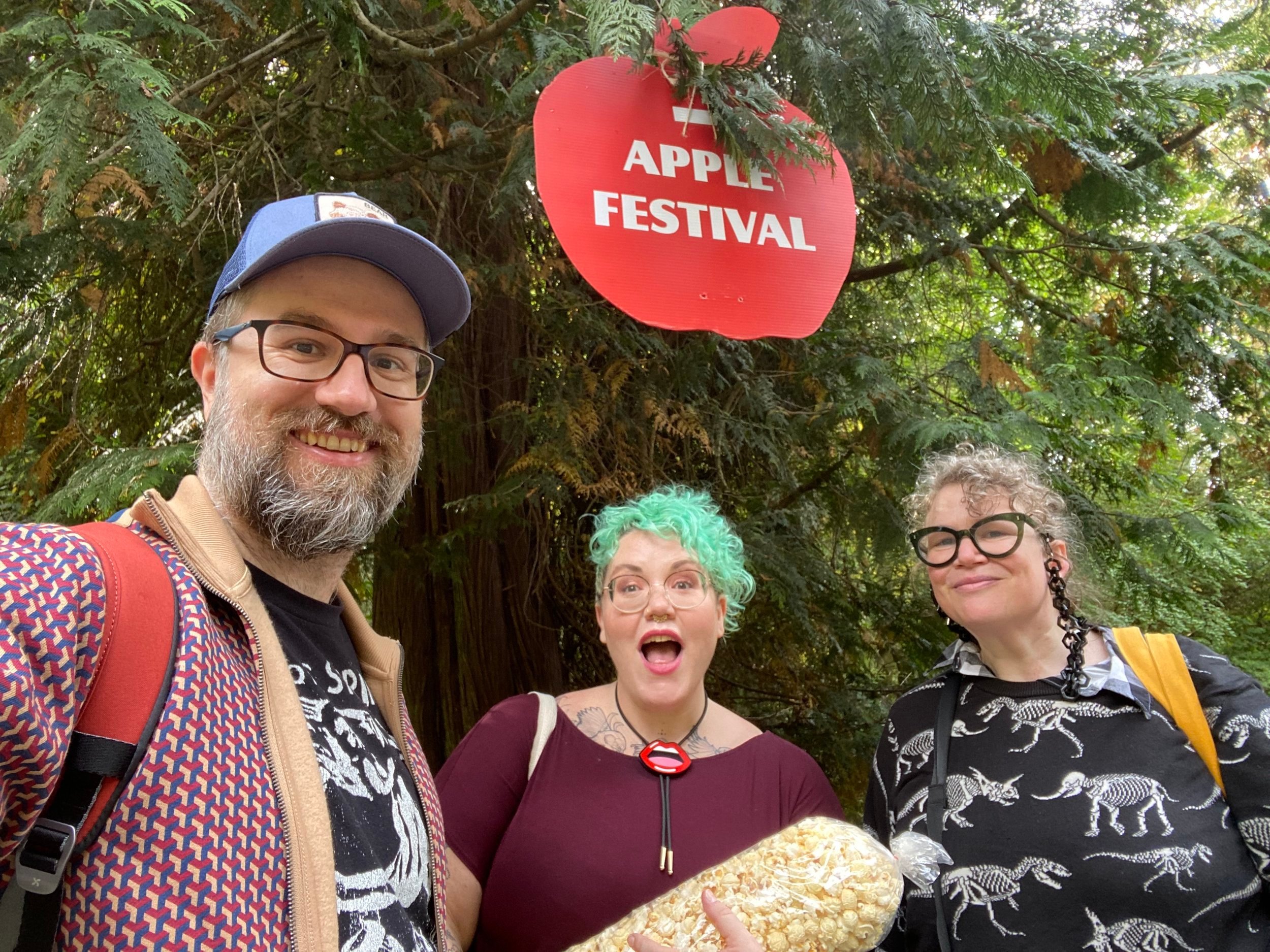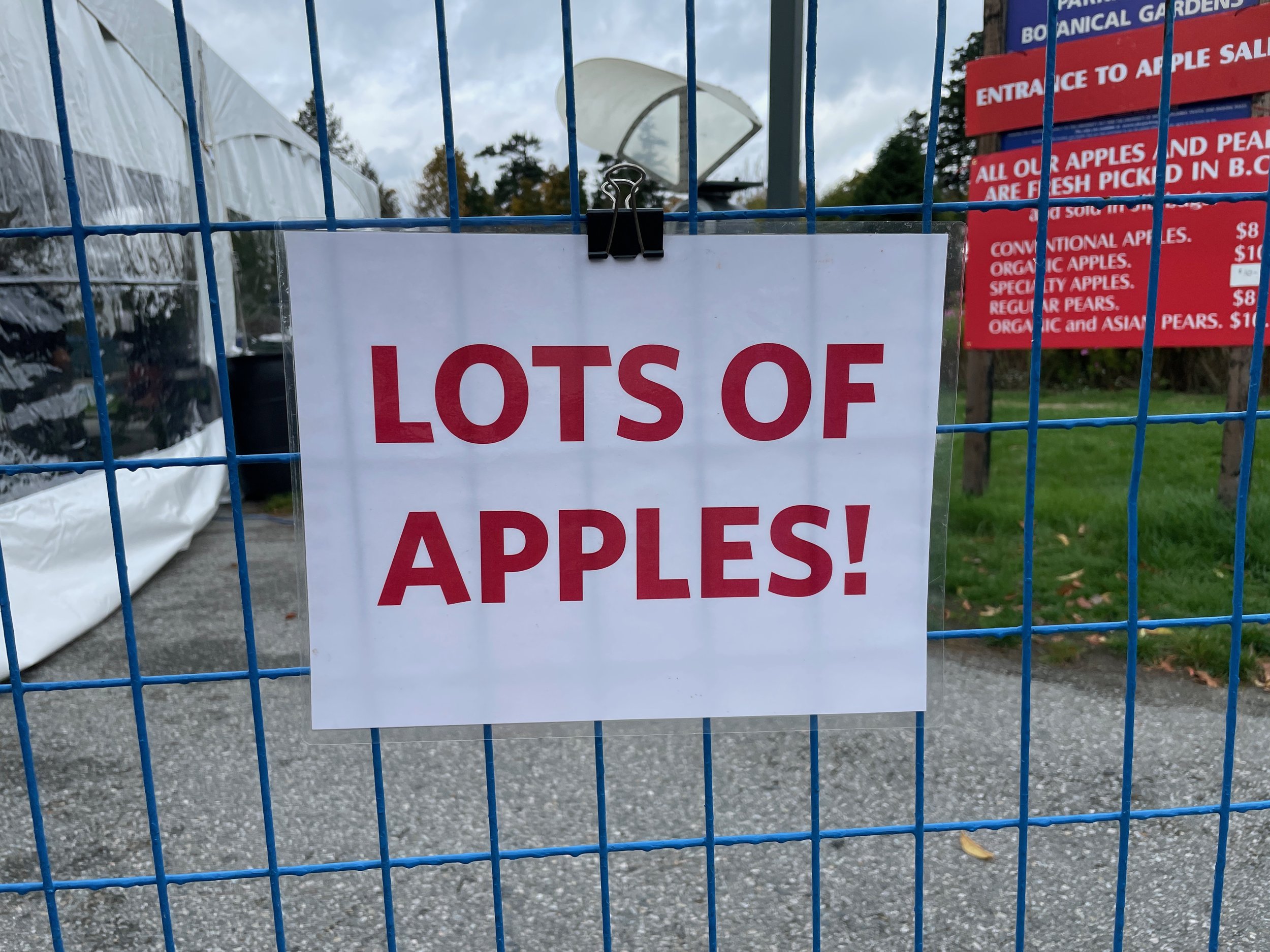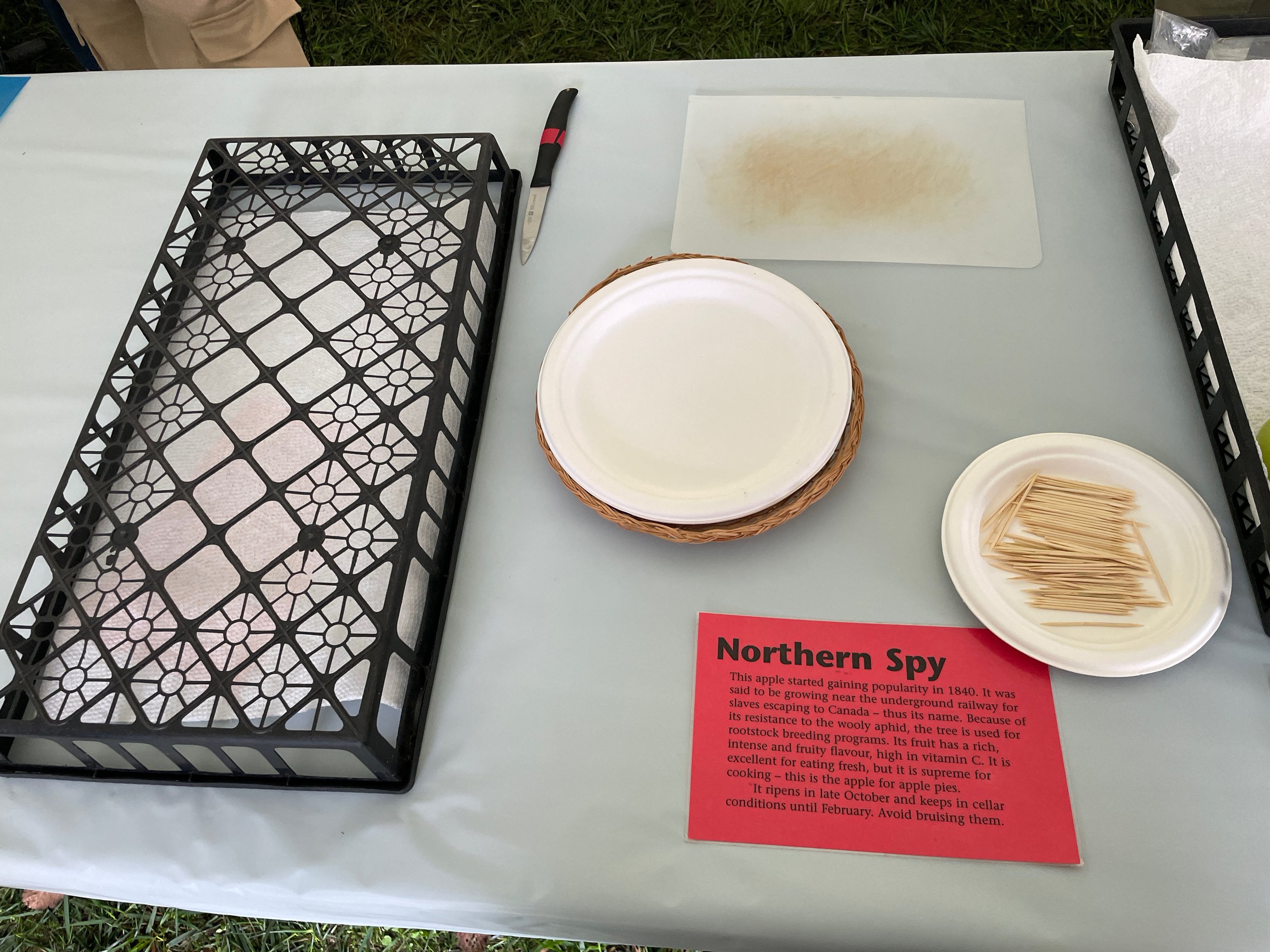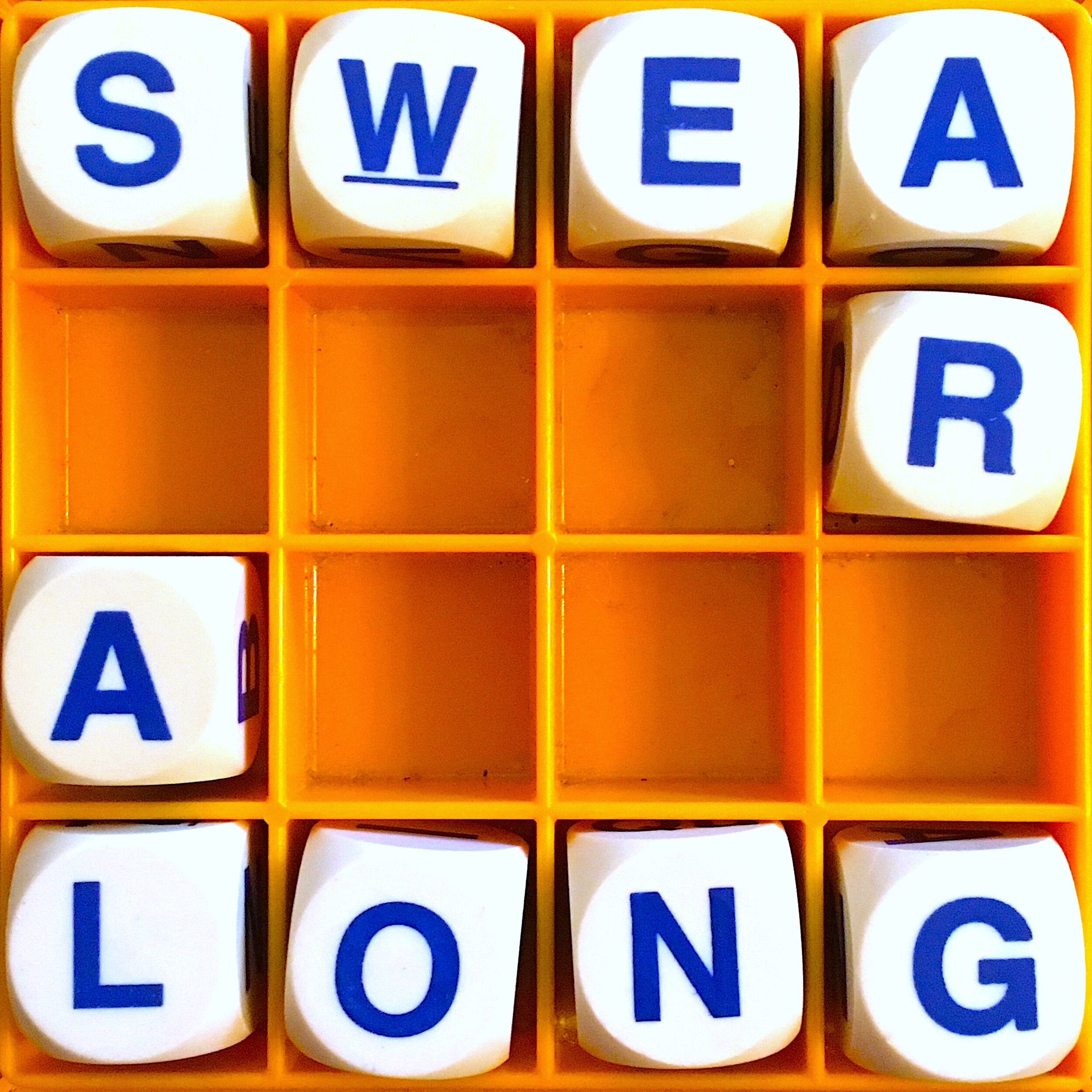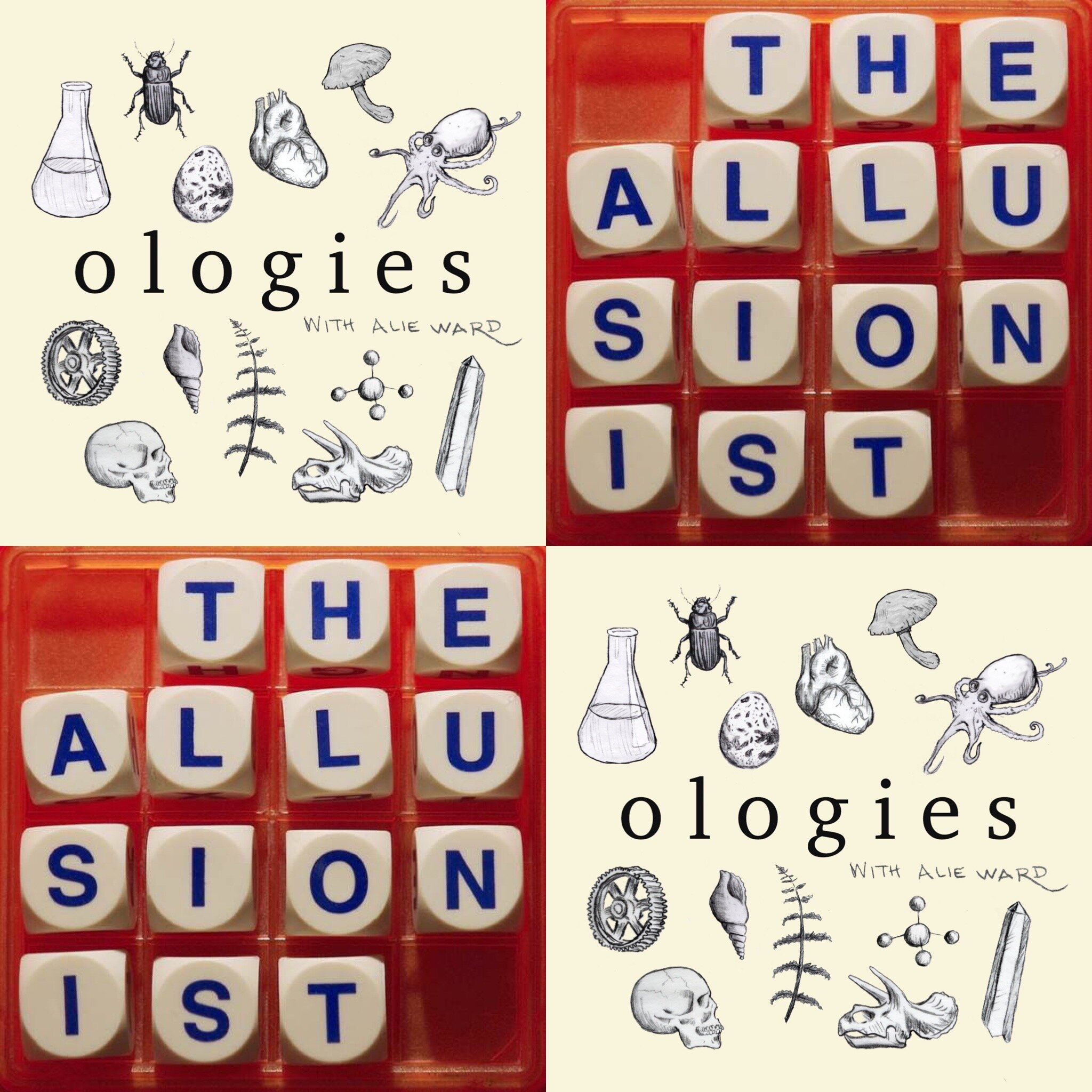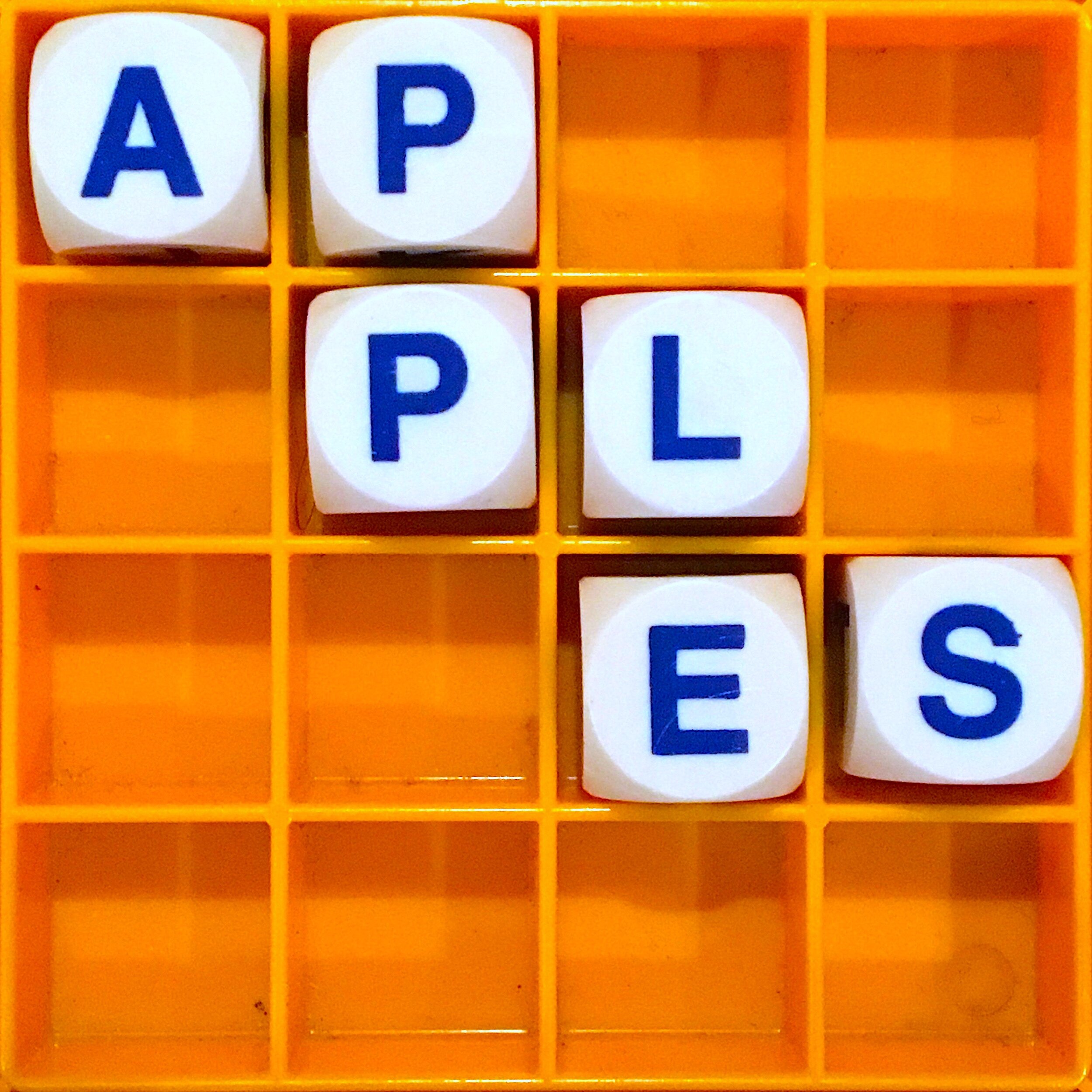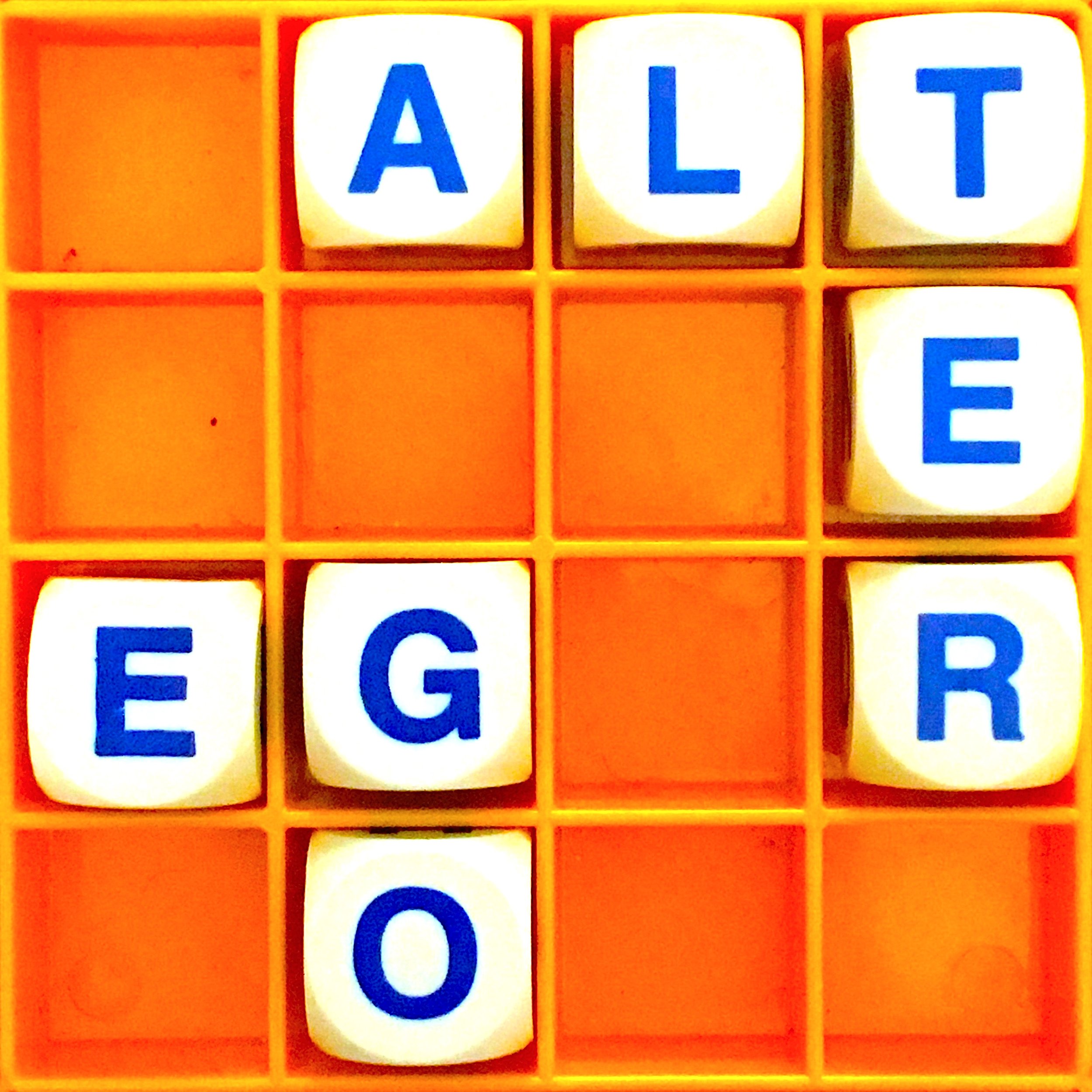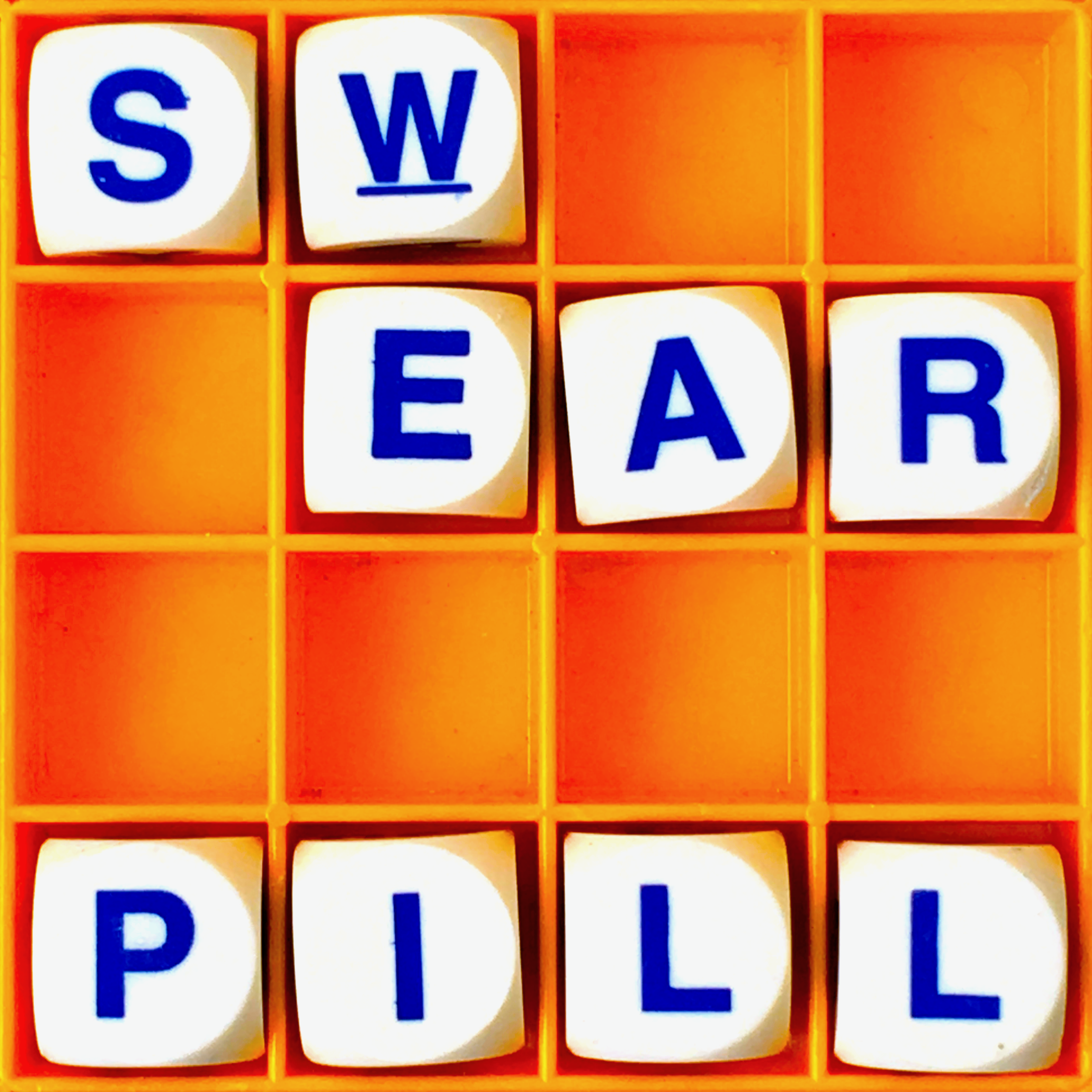And now, the Applelusionist, which was a collaboration with the Sporkful podcast - their episode was about how new kinds of apples are made, mine was about how apples are named, and why? Because back then, in the autumn of 2019, a new apple was about to be launched.
It’s been in development since 1997. It’s expected to be a huge moneymaker of an apple, being reliable for growers, and staying good for a really long time. Millions of trees have already been planted, millions of apples pre-ordered: it’s the biggest product launch in apple history.
It has its own trademarked slogans: “The Apple of Big Dreams™” and “Amazing Flavor + Infinite Possibilities™”
It’s the apple formerly known as the WA38: the Cosmic Crisp.
HZ: What's the big fuss about the Cosmic Crisp? Why is everyone so hyped about this particular apple? In your opinion.
DAN PASHMAN: Well, it's probably a little bit of a circular thing, because so much effort and expense has been put into making it: that creates the hype; the stakes of the thing create the hype. If it was just like a soft launch like, “Hey, we're going to plant a few trees, we're going to see how it goes and then maybe in twenty years we'll have the Honeycrisp," that's not as exciting.
HZ: You've really got to be incredibly patient, haven't you, when you're trying to come up with a new apple that's great, because you might not find out that it's failed for so many years. It is not an easy process. You have got to be a diligent and patient human who loves the company of trees.
DAN PASHMAN: The guy who first came up with the cross that became Cosmic Crisp retired before before the process ended. That's how long it took.
HZ: Didn't get to see it come to fruition, what what?
DAN PASHMAN: Oh. Very nicely done.
HZ: Don't reward me for bad behaviour.
HZ: On the Sporkful episode, Dan and I find out about what goes into developing a new kind of apple, and right here on the Allusionist, it’s all about apple names.
KATE EVANS: Coming up with the Cosmic Crisp name was a little agonizing initially.
HZ: This is Professor Kate Evans, who’s been leading the Cosmic Crisp breeding program at Washington State University since the apple’s father Bruce Barritt retired in 2008.
KATE EVANS: Various people have said it is actually worse than naming your child because people criticize you if they don't like the name and usually people don't say, hey that's a terrible name you named your child, why did you do that?
HZ: Don’t they?
KATE EVANS: But with an apple, you get a lot of that.
HZ: How do you name the apple that’s getting the biggest launch of our lifetimes?
KATHRYN GRANDY: Kathryn Grandy. I am chief marketing officer for proprietary variety management, and we have been contracted by Washington State University to commercialize the WA38, which is now called Cosmic Crisp.
HZ: It’s a catchier name.
KATHRYN GRANDY: As a marketing group we look at the category: what is the heritage of the apple? What's the parentage? How was it bred? Where was it developed and researched? What is the location that it's being grown in? And we evaluate the category. And then we look at the physical characteristics of the apple. And is it red, is it green, is it two colours, bicolour, what does it look like?
HZ: The Cosmic Crisp is very round, with pale firm flesh and shiny dark red skin covered in little light dots - the lenticels, the apple’s pores. It’s a good-looking apple; you’d cast it in a production of Snow White.
KATHRYN GRANDY: And then we taste it and what's the flavour profile: is it sweet, is it crunchy, is it juicy? And we collectively develop a profile for that that product, and then we do sensory testing with consumers.
HZ: The University worked with focus groups, doing taste and sensory testing.
KATHRYN GRANDY: Cosmic Crisp is the first apple named by consumers, which I find interesting.
KATE EVANS: And it was really just getting the apple in there, brainstorming with different groups to come up with words that they thought were descriptive of that fruit that they were looking at and tasting.
KATHRYN GRANDY: And we do try to guide them away from some of the more interesting names.
HZ: Such as?
KATHRYN GRANDY: People love to name fresh fruit after candy and we've had candy cane, candy apple, candy crunch, Jolly Rancher. Taking a fresh piece of fruit that's very nutritious and calling it Candy or Sugar just didn't feel right.
DAN PASHMAN: But can I ask, Kathryn: I would think that people know that fruit is generally healthy. And so anything that tastes like candy but is still fruit would be a good thing.Why is candy crunch or candy apple not a good name for an apple?
KATHRYN GRANDY: Well, my personal opinion is because we're promoting nutrition and health; but in general, they don't resonate with consumers. Consumers don't really like the sugar or candy implication either. So having had that feedback, describing it as candy wasn't necessarily the the right direction for us to go.
DAN PASHMAN: Got it.
KATHRYN GRANDY: Others wanted to name it after the state where it's grown, in Washington; but, being a global brand, it didn't necessarily resonate resonate outside of the state.
HZ: Are there any other terms or words that you preferred to steer clear from?
KATHRYN GRANDY: We had a list that we received, and collectively I think there was about two hundred and fifty names on it from growers and consumers, and we did get things that described the colour of the apple, like we received the name Red Darling, and Cardinal Crisp, and Red Beauty. And so I think the colour description’s always nice, but there are so many apples today with ‘crimson’ or ‘red’ or that description that it wasn't unique. And the combination of ‘Red Crisp’ or something like that is very difficult in today's world to trademark.
HZ: What are the criteria for a trademark?
KATHRYN GRANDY: It has to be unique and it can't be similar to another food product. An example would be ‘Red Beauty’.
DAN PASHMAN: That was on your list for Cosmic Crisp?
KATHRYN GRANDY: Yeah, for Cosmic Crisp - Red Beauty. There are other trademarks in other areas of the world that use similar name combinations and Cosmic Crisp needed to be unique not only to be trademarked in the US but it's a global brand and needed to have a meaningful name that went internationally as well, and that meant all the right things in other languages and other cultures. It gets complicated trying to to name something that will resonate with people in all cultures across the globe.
KATE EVANS: You've got to look at what does that name mean? What would that name mean in different countries with different languages? It is a challenge coming up with a decent name that works wherever you are.
HZ: It took around a year to settle on the name ‘Cosmic Crisp’.
KATE EVANS: And the word ‘cosmic’ came up quite early on because somebody associated the appearance of the fruit with the cosmos. It can be a relatively reddy purply kind of background with almost looks like little white stars over it. Those are the lenticels on the on the skin; all apples have them and they in some cases are a little more prominent than others in terms of appearance. And so this: oh, okay, well it reminds me of the cosmos.
DAN PASHMAN: I think freckles is a better analogy.
HZ: It reminded me a bit of a dappled horse.
HZ: Nobody asked us, though.
KATE EVANS: So the word ‘cosmic’ came in at that point and crisp is very very obvious word to go with the apple.
HZ: It is a crisp apple. Also ‘crisp’ nods to one of the Cosmic Crisp’s parents, the Honeycrisp. Its other parent, the Enterprise - eh, bad luck, Enterprise.
KATHRYN GRANDY: After the name was selected and initially growers and even some people from WSU didn't really like the name Cosmic Crisp
HZ: Oh, why not?
KATHRYN GRANDY: They said it's like The Jetsons, too futuristic.
HZ: Is that bad?
KATHRYN GRANDY: You know, I love the name; and being futuristic and like The Jetsons I think is pretty cool. But the one thing I've learned being in marketing is everybody is an art director. Somebody wanted to named Cosmic Crisp ‘Sparkle’. And to me that makes me think of dish soap. And it is a trademarked name for paper towels. So I think there's a lot to naming it properly.
HZ: There's an apple called Strawberry. How is that allowed? It's just confusing.
KATHRYN GRANDY: Well, maybe it looks like a strawberry.
DAN PASHMAN: Maybe it has hints of strawberry in its flavour.
HZ: Not good enough. I like that there's one called Jonathan as well. That's the normcore apple.
DAN PASHMAN: But is there one, Kathryn, that you haven't had any involvement in that you're just like, “Oh man, that's a great name”?
KATHRYN GRANDY: I like the name Snapdragon. That’s a New York apple, and the tagline’s great: “A monster crunch.” I think that's pretty descriptive. They have a nice logo.
DAN PASHMAN: Helen, do you have a favourite?
HZ: Not yet. I feel like the best could be yet to come. And also I find it difficult to separate the quality of the name from the apple. So for instance, I enjoy a Jazz apple, therefore I like the Jazz apple name, but do I? Do I?
KATHRYN GRANDY: And why was it named ‘jazz’? I don’t know.
HZ: It's a fun word. But then I don't think I don't feel like the apple is what jazz music would taste like.
DAN PASHMAN: I agree. I feel like like it's a name that like sounds good on the surface, but upon further reflection makes no sense.
HZ: I think it's more like a jaunty brass band number or something.
DAN PASHMAN: Yes!
HZ: I have a question. Red Delicious. How dare it.
KATHRYN GRANDY: Oh boy. Are you not thinking it's so delicious any more?
HZ: Come on. Who is thinking it is?
DAN PASHMAN: Helen and I are going to team up on a class action lawsuit for false advertising.
HZ: It is red. I’ll allow that.
KATHRYN GRANDY: We're moving it to the potato category, because that’s what it tastes like these days.
HZ: I think some people be surprised that when they are mentioning an apple by name, they're actually mentioning a trademarked word. They might think, “Oh, that's just what it's called. Like a carrot is called a carrot.”
KATHRYN GRANDY: Yeah. I notice with Cosmic Crisp people are already trying to shorten it to Cosmics, and because of our trademark protection you know we of course want them to say Cosmic Crisp, but it's kind of like cola and Coke or Xerox and copy. We have to be very protective and careful to use the trademarked name so that we we don't lose it.
HZ: Is there a way that we should be pronouncing the r in a circle at the end of Cosmic Crisp?
KATHRYN GRANDY: Just use it.
HZ: I’ll mime it with my hands. Do you know of any apples that were called ‘dreary fluffball’ and then they renamed them ‘fantasma mouthgasm’ so that they would sell better?
KATHRYN GRANDY: Ohhhh, gosh.
DAN PASHMAN: Did you just say ‘fantasma mouthgasm’, Helen?
HZ: You can have that.
HZ: It’s not completely beyond the realms of possibility. Some apples do have very grandstanding names.
JOANNA CROSBY: Laxton’s Superb, Laxton's Epicure, Laxton's Exquisite, Laxton's Peerless, Laxton's Triumph. You get the idea - apples grown by a 19th century chap called Laxton. He is not shy on advertising, was Laxton.
HZ: This is Joanna Crosby, who studies the social and economic history of apples. I asked her about how apples used to be named before focus groups and taste testing and marketing departments were part of the process.
JOANNA CROSBY: When a new variety of an apple comes up, a lot of the time it's named after what it looks like.
HZ: Crimson Delight, Pink Pearl, Brown Snout, Knobby Russet...
JOANNA CROSBY: So for instance, there's an apple that probably dates back to the Roman times. You can still eat it today - which is quite an amazing piece of time travel, I think - and it's called the Court Pendu Plat. Which means 'short, hanging and round', which it is. Once you've seen it, you can't forget it; it looks like a like a flat peach, like a doughnut peach, in shape. It is really flat, and it's really round. There's also apples like the Red Streak. There's also Sunset and Suntan. Now they have the most beautiful coloured skins. There's Cats Head, which is indeed exactly the shape of a cat's head. You could put some ears on it, make a little Halloween lantern out of a Cats Head apple. Actually the tree related to an apple, the medlar. It's like an early cousin of a sweet apple tree; it has a small fruit on it. Its country name is, I'm afraid to say, 'cat's arse', because that's also what the fruit looks like.
HZ: It does. Luckily - or unluckily? - there are lots of apple names that are not referring to appearance.
JOANNA CROSBY: Then Orleans Reinette - reinette means 'little queen', and they were all named in the 18th century in the periods when we weren't at war with the French, and all the reinette apples were when France and everything French were incredibly popular. There's one called Mere de Menage, which sort of means housewife, but it's a much much more beautiful name for an apple than housewife.
HZ: Envy; Flamenco; Jonagold, a portmanteau of golden delicious and the Jonathan apple...
JOANNA CROSBY: There's one called Clear Heart, Early Transparent, Colonel Vaughan, Cornish Pine, Cottenham Seedling, Chivers Delight...
HZ: Splendour, Peasgood’s Nonsuch, Foxwhelp, Slack-ma-Girdle… Northern Spy! Green Cheese?
JOANNA CROSBY: There's Pitmaston's Pineapple, because it tastes of pineapple. So there are ways of describing an apple which gives you those names.
HZ: An apple’s name might contain information about its origins - for instance a pippin is an apple grown from seed, or its name might contain the apple’s place of origin: Roxbury Russet, Carolina Red June, Beauty of Bath, Westfield Seek-No-Further...
JOANNA CROSBY: There's one called a Kentish Fillbasket, and they are well-named because one apple would indeed fill a basket. They are huge. If Isaac Newton had under a Kentish Fillbasket apple, he would have been knocked out cold and would never have thought about gravity again probably.
HZ: And a lot of apples have named after people: perhaps the person who first grew them, or the person who popularised them...
JOANNA CROSBY: And the Bramley apple: named after the gentleman who first exhibited it to the Royal Horticultural Society. So he is saying, "Here, this is my apple," but really the Bramley apple should be called the Mary Ann, because the young lady who grew the pip from which the Bramley apple and then all Bramley apples have come was called Mary Ann Brailsford. So perhaps we should claim it back for her.
HZ: Was Granny Smith a real person?
JOANNA CROSBY: Granny Smith is named after the lady who grew up from a pip. She was properly called Mrs Ann Smith. And it comes from New South Wales; Granny Smith herself came from Sussex and emigrated to Australia and she found a seedling tree growing in a creek. And so it is her apple.
HZ: She didn’t name it after herself; only a couple of years after discovering and propagating her apple, she died, and a little while later other growers named it in tribute to her. Other apple tribute names are less sweet, and were more... compulsory, say if you worked for some aristocrats and cultivated a kind of apple on land they own.
JOANNA CROSBY: It is sensible if you want to keep your job as an estate gardener if you name your apple after the lord or the lady who you're working for. So we have Lord Derby, which is another large cooking apple. There's also one called Lady Henniker. Now, history does not record how delighted she was to be named after this apple or this apple named after her, because it is quite an ugly lumpy misshapen big green apple. She may not have been delighted.
HZ: Do you think it was an insult, if the orchard-keeper hated her?
JOANNA CROSBY: Well, I don't think so. No, but it's not the daintiest of apples, so I do wonder why she came to mind.
HZ: The problem with this system - well apart from issues of meritocracy vs aristocracy, or using the apple names a an insult - was that you might have had a situation where the same apple is growing miles apart under two different names. Or more than two.
JOANNA CROSBY: An apple variety, if you look up a variety, it can have something like 20 names. But it's the same apple. So now in 21st century we are DNA-profiling apples, and I think we will actually find that the number of varieties will reduce because we will have worked out that these apples are one and the same thing.
KATE EVANS: I have also spent a fair amount of time going through some of that material and testing it, kind of like DNA fingerprinting it, to determine whether or not things are actually the same but with different names. When you start to look at the history of how some of those old varieties have moved into different places, sometimes they came into a particular region and were given a local name and then got absorbed into the into the national collection at some point with that name. And then you find out actually there are two or three different - we call them accessions, different entries into the collection that are that are all different names but in fact they're all the same thing.
HZ: The Victorians decided something had to be done about this, and with DNA testing not yet an option, in October 1883, the National Apple Congress was held in London. Growers from all over the UK sent in their apples in to be catalogued and categorised by a committee of fifty fruiterers - they received 10,150 apple submissions altogether.
JOANNA CROSBY: And they put them all out in bowls and first of all they looked at them and tried to see if any were the same variety.
HZ: The apple-growers also submitted information about such things as what conditions the apple grew in - soil and subsoil, sheltered or exposed places, what the trees are like - and they had to list what kinds of recipes the apples lent themselves to.
JOANNA CROSBY: And the public came in to look at this fruit; they'd never seen anything like it. And they actually had to extend the opening hours of the apple congress to allow everybody to come in and see it.
HZ: And while the public were having fun being dazzled by all these apples, the committee had to catalogue all the fruit, record each apple’s colour, size, shape, texture, time of the season it ripes, and whether it’s to be used for dessert, cooking, or cider. They found that there were 1545 kinds of apples at the congress, exhibited under 2020 different names or variations on similar names. Some apples had had several different names. For instance, the Scorpion apple also appeared as D’Eclat, Harvey’s Wiltshire Defiant, and Russian Transparent. Those are all strong names - very evocative. How do you choose the best one that the apple’s going to be known as henceforth?
HZ: I was wondering how you, Dan Pashman, would settle it to choose the apple name that would be the name that the apple got to keep. Throw apples at each other?
DAN PASHMAN: Am I like the king in this situation - do I decide by edict or is this a group effort?
HZ: Well, I mean, it's your apple fantasy; but sure, you can be King Apple for the day.
DAN PASHMAN: I'm the Apple King. I guess I would want to form a focus group of one. And I would want to eat the apple and do some sort of like free association exercises to figure out what the apple reminded me of, how it made me feel; and then I would pick which name seem closest to that.
HZ: And would you think, "Okay, this apple tastes better when it's known as the Royal Crisp versus when it's just Jonathan's apple"?
DAN PASHMAN: I'm sure that makes a difference. I'm sure that the name is make a difference in how you perceive the taste so you'd have to then do a different kind of test. I wouldn't just wanted to issue it by by edict, now that I think about it, Helen; I would bring all of my subjects together and I would divide them up into a scientific study to see how the name affects the taste perceptions you have. You'd have to run studies in both directions: how does the taste dictate the name, and how do different names dictate the flavour perception?
HZ: At the same time, you could decide to destroy hierarchies and create a republic through the medium of apple taste testing.
DAN PASHMAN: So you're saying to turn it into a democracy? To, of my own volition, relinquish all my power?
HZ: Yes, it's for the greater good. Through apples. Now that you have learned how much time and work goes into an apple when you're reaching one now are you more or less appreciative of it. Are you thinking 'gosh this is just the result of years if not centuries of cultivation" or are you thinking, "wasn't worth it, it's just an apple"?
DAN PASHMAN: I think it was worth it! I mean, I didn't have to do anything. I think that the folks who dedicated their lives for this are super passionate about it. So they're happy, and we get to eat the apple, so we're happy; everyone wins.
HZ: That was the Sporklusionist, now brace yourself for more appletimes because we’re about to go to Applefest 2023.





